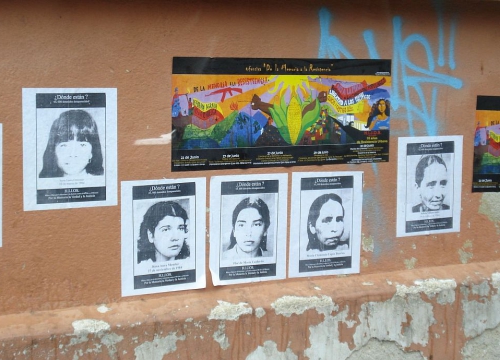This one-year full-time postgraduate degree course (60 ECTS) combines high-level academic education and real-world practice in the field of transitional justice, human rights and the rule of law. One of the very few programmes on this subject worldwide, it combines theoretical and practice-oriented perspectives and equips students with the knowledge, tools and critical mindset to assist countries, societies and victims emerging from periods of conflict and repression to address complex transitional justice issues.


Luis Guillermo Pineda Rodas
From Northern Ireland to Burundi, Timor-Leste, Sri Lanka, Tunisia or Guatemala, countries throughout the world struggle to deal with the aftermath of violent conflict or oppressive rule.
What does it mean for a society to come to terms with mass atrocities, such as genocide and ethnic cleansing? How can the rule of law be re-established in a country shattered by wide-scale violence? What are the legal obligations and standards relevant to societies trying to turn the page on a history of political violence? How can the competing demands of peace and justice be balanced in the aftermath of such traumatic events? What can realistically be expected from measures such as trials, truth commissions, reparation programmes and institutional reform?
The Master of Advanced Studies (MAS) in Transitional Justice, Human Rights and the Rule of Law is a one-year full-time postgraduate degree designed for highly qualified and open-minded candidates interested in acquiring high-level academic education and practice in the field of transitional justice, human rights and the rule of law.
One of the very few programmes on this subject worldwide, its cross-disciplinary approach combines legal, political, historical, anthropological, philosophical and field perspectives and promotes both academic excellence and independent critical thinking.
Throughout the year, students have access to a prestigious faculty composed of leading academics and renowned experts and practitioners working for international organizations and NGOs who are in touch with the latest developments and debates.
Core courses provide a firm grounding in the central theoretical and practical transitional justice issues.
Our Master of Advanced Studies in Transitional Justice, Human Rights and the Rule of Law is also profoundly committed to developing the transferable skills necessary to succeed in the professional world and take up responsibilities in the humanitarian and human rights fields. To this end, internships with leading actors and participation in moot courts provide a solid exposure to practical work and allow students to expand their network.
The programme allows students to tailor their studies according to their particular interests with optional courses.




